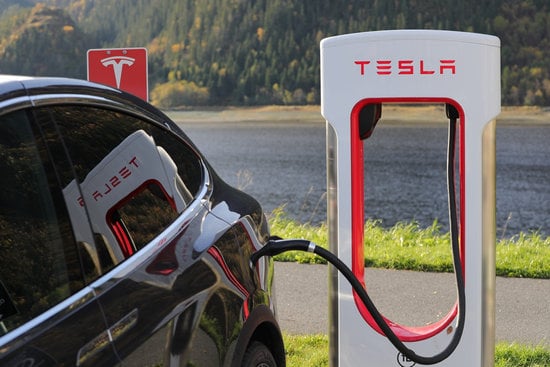Is an Electric Car Right for You? Key Questions to Ask Before Buying

Electric cars (EVs) are revolutionizing the automotive industry, offering a sustainable and efficient alternative to traditional gasoline-powered vehicles. With growing environmental concerns and advancements in EV technology, many consumers are considering making the switch. However, before purchasing an electric car, it’s essential to evaluate whether it suits your needs and lifestyle. This guide will help you navigate the decision-making process by answering key questions and providing insights into the benefits and challenges of owning an EV.
Key Questions to Ask Before Buying an Electric Car
1. What Are Your Driving Habits?
Key Points:
- Daily Commute Distance: Assess your daily travel distance and the range required.
- Frequency of Long Trips: Consider whether you regularly take long road trips.
Explanation:
Understanding your driving patterns is critical when choosing an EV. For instance, if your daily commute is less than 50 miles, most electric cars will suffice. However, frequent long-distance travel may require a model with extended range or access to a reliable charging network.
2. What Is Your Budget?
Key Points:
- Upfront Costs: Electric cars often have higher initial prices.
- Incentives and Rebates: Research government and manufacturer incentives.
- Operating Costs: Evaluate potential savings in fuel and maintenance.
Explanation:
While EVs may have a higher purchase price, they offer significant savings over time through reduced fuel and maintenance costs. Take advantage of tax credits, rebates, and manufacturer discounts to lower your upfront expenses.
3. Do You Have Access to Charging Infrastructure?
Key Points:
- Home Charging: Assess whether you can install a Level 2 charger at home.
- Public Charging Stations: Check the availability of charging networks in your area.
- Workplace Charging: Determine if your workplace offers charging facilities.
Explanation:
Charging convenience is a critical factor in owning an EV. Home charging provides the most flexibility, but access to public or workplace charging stations can supplement your needs, especially during long trips.
4. What Range Do You Need?
Key Points:
- Battery Range: Evaluate the range offered by different EV models.
- Real-World Performance: Consider factors like weather, terrain, and driving habits.
Explanation:
Range anxiety is a common concern for new EV buyers. Understanding your range requirements and researching real-world performance will help you select a vehicle that aligns with your needs.
5. How Will an EV Impact Your Lifestyle?
Key Points:
- Daily Routine Adjustments: Charging schedules may require slight changes.
- Environmental Benefits: Consider the reduction in your carbon footprint.
- Driving Experience: Enjoy benefits like quiet operation and instant torque.
Explanation:
Switching to an EV often involves lifestyle changes. While charging requires planning, the environmental and driving benefits can make the transition worthwhile.
6. Are Maintenance Costs Lower?
Key Points:
- Fewer Moving Parts: EVs have fewer components that require servicing.
- Battery Maintenance: Understand battery warranties and replacement costs.
Explanation:
Electric cars generally have lower maintenance costs due to the absence of complex engines and fewer moving parts. However, it’s essential to consider the long-term cost of battery maintenance and replacement.
7. What Are the Environmental Impacts?
Key Points:
- Reduced Emissions: EVs produce zero tailpipe emissions.
- Sustainable Energy: Evaluate the source of electricity in your region.
Explanation:
Electric cars contribute significantly to reducing greenhouse gas emissions, especially when powered by renewable energy sources. Research the environmental benefits of EV ownership in your area.
8. How Does Resale Value Compare?
Key Points:
- Market Trends: EV resale values are improving with increased demand.
- Battery Degradation: Consider how battery health affects resale price.
Explanation:
Resale value is an important consideration for long-term ownership. While early EV models faced depreciation challenges, newer models are retaining their value better, thanks to improved battery technology and growing consumer interest.
9. Are There Enough Model Options?
Key Points:
- Vehicle Types: Explore options like sedans, SUVs, and trucks.
- Brand Reputation: Research manufacturers with proven track records.
Explanation:
The EV market has expanded, offering a variety of models to suit different preferences and needs. Compare features, prices, and brand reliability to find the best fit.
10. What Is the Total Cost of Ownership?
Key Points:
- Depreciation: Factor in long-term value retention.
- Energy Costs: Compare electricity rates with fuel costs.
- Insurance Premiums: Check if EV insurance is higher or lower.
Explanation:
The total cost of ownership includes purchase price, operating expenses, and depreciation. Calculating these factors will help you understand the true cost of owning an EV.
Conclusion
Purchasing an electric car is a significant decision that requires careful consideration of your driving habits, budget, and lifestyle. By addressing key questions such as charging infrastructure, range needs, and environmental benefits, you can determine whether an EV is the right choice for you. As technology advances and the EV market continues to grow, owning an electric car has never been more appealing or accessible. Take the time to research and compare models to make an informed and confident decision.


